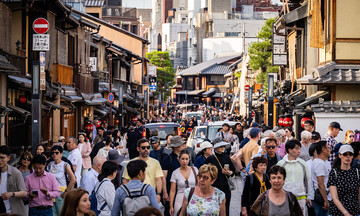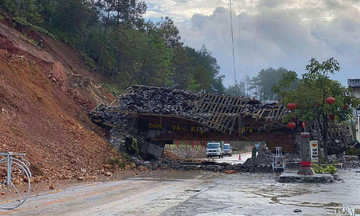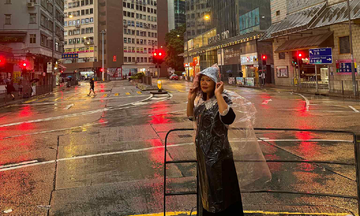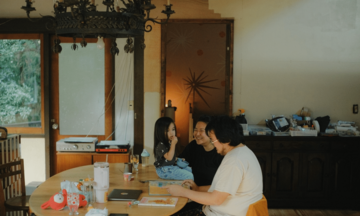This meal could be my last. This walk, too. And when I go to sleep tonight, I might not wake up tomorrow.
For many Bhutanese, reminders of mortality are woven into daily life. Tsa-tsas--small, hand-sized cones molded by monks from the ashes of the deceased--are scattered in caves and along roadsides, prayers for departed souls.
White flags flutter from poles high on mountaintops, sending well wishes into the wind. In the country's countless temples, flesh-eating demons, skulls, and monsters of the underworld dance across walls in vibrant, yet time-worn colors. All are there to remind you that you will die.
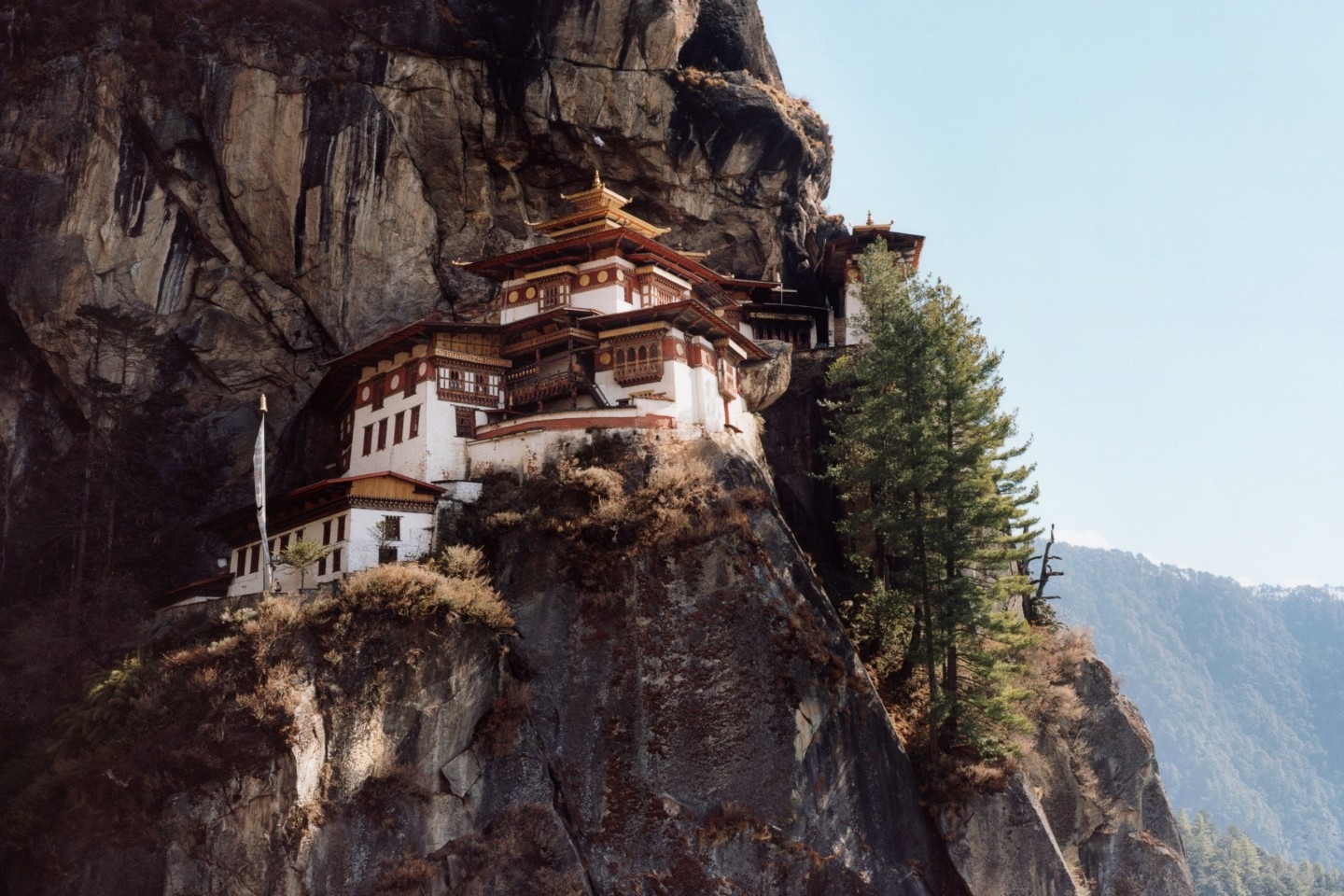 |
Tiger's Nest Monastery in Paro, Bhutan. Photo: FT |
Tiger's Nest Monastery in Paro, Bhutan. Photo: FT
Bhutanese lore suggests that to be happy, one must contemplate death five times a day. Only by acknowledging our finite time can we focus on what matters and let go of what doesn't.
Yet, where there is death, there is also life. In Bhutan, this adage takes on true meaning. A vibrant energy radiates from the landscape: from the endless Himalayas, the forests shrouded in mist and draped in lichen--a sign of clean air--to the rice paddies that cascade down hillsides like molten green lava. Interspersed are ancient villages with mud-brick walls, brightly painted window frames, and prayer flags, all testaments to human toil and ingenuity.
What residents lack in monetary wealth, they make up for in the richness of simple pleasures: every meal sourced from the land; spiritual solace from temples on every corner; and lungs filled with clean, pine-scented air.
Here, the pursuit of happiness is an actual government policy. Gross National Happiness (GNH), coined by Bhutan's 4th king, Jigme Singye Wangchuck, demonstrates the nation's prioritization of mental, social, and environmental well-being over material wealth.
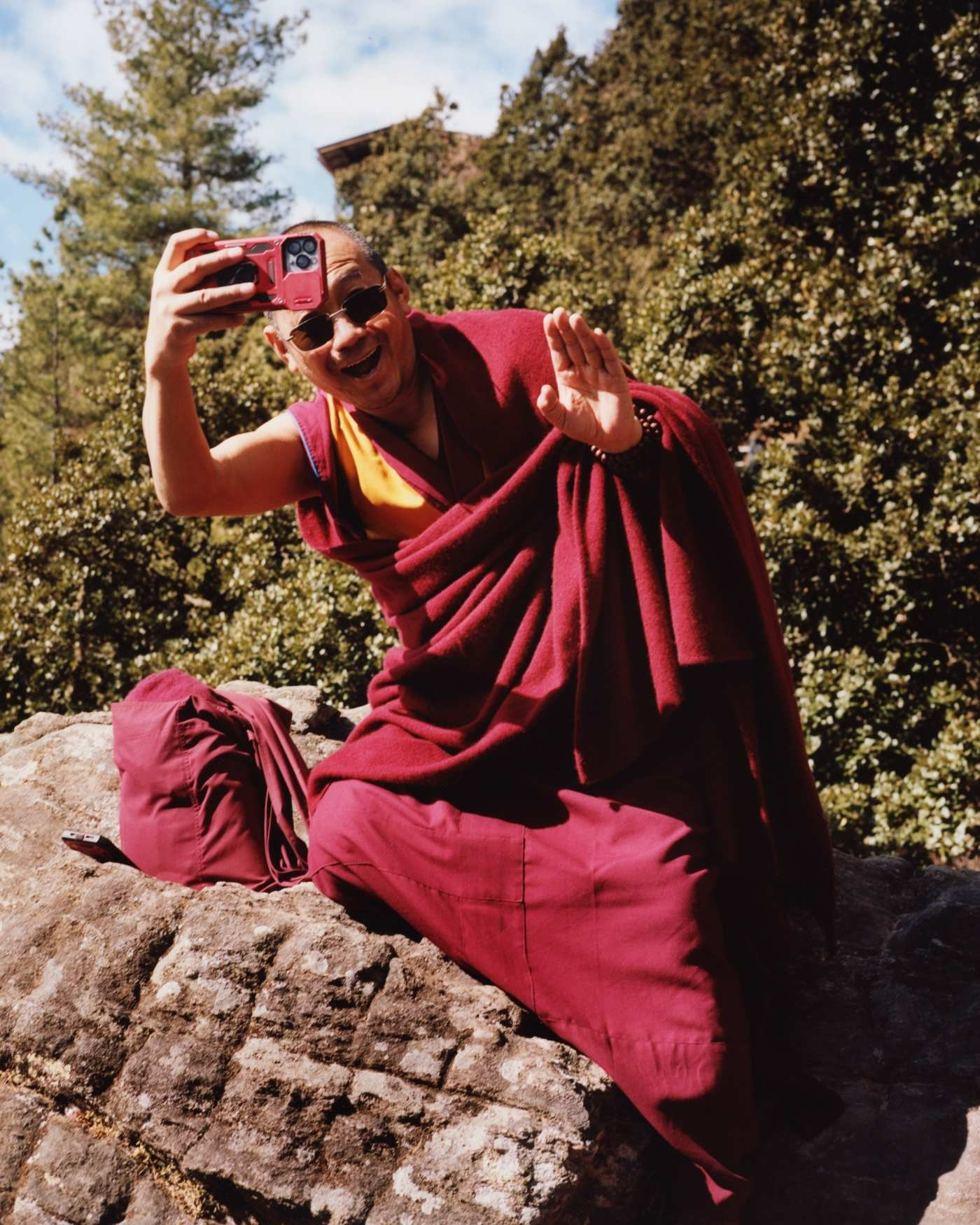 |
A monk in Bhutan. Photo: FT |
A monk in Bhutan. Photo: FT
In the documentary *Agent of Happiness*, Bhutanese filmmaker Arun Bhattarai follows two census takers on a journey across the country, surveying Bhutanese citizens' happiness levels. They encounter a teenager worried about his alcoholic mother and three wives--all married to the same selfish man--who find hope in sisterhood.
Despite encountering misfortune, and in some cases, tragically low happiness scores, there is a serenity in the stories they share.
"One of the biggest lessons I learned making this film is about accepting the present reality," Bhattarai said. He noted that this acceptance gives Bhutanese people the strength to overcome adversity. For them, everything is interconnected, and a neighbor's happiness is as important as their own.
Another interviewee, grieving his wife's death, finds comfort in believing she has been reborn as his grandchild. Like most Buddhists, the Bhutanese believe in reincarnation, returning to Earth again and again. This may also explain their dedication to protecting the natural environment.
Forests are protected and revered as a living entity, nurturing both the land and its people. Plastic bags have been banned since 1999. A commitment to keeping at least 60% of the land covered in trees is enshrined in the constitution. Valleys filled with bamboo and oak absorb more carbon dioxide than the country emits, making Bhutan the first--and currently only--carbon-negative nation in the world.
A Sustainable Development Fee applies: a tourist tax used to fund conservation projects, healthcare, and education for citizens. The 100 USD per person, per night fee is a small price to pay for a journey to a society seemingly untouched by greed and competition.
In a world obsessed with time, Bhutan offers a rare pause. Physical and mental tranquility are present in the dim forests. On long, winding roads, your only companions are birds and countless prayer flags.
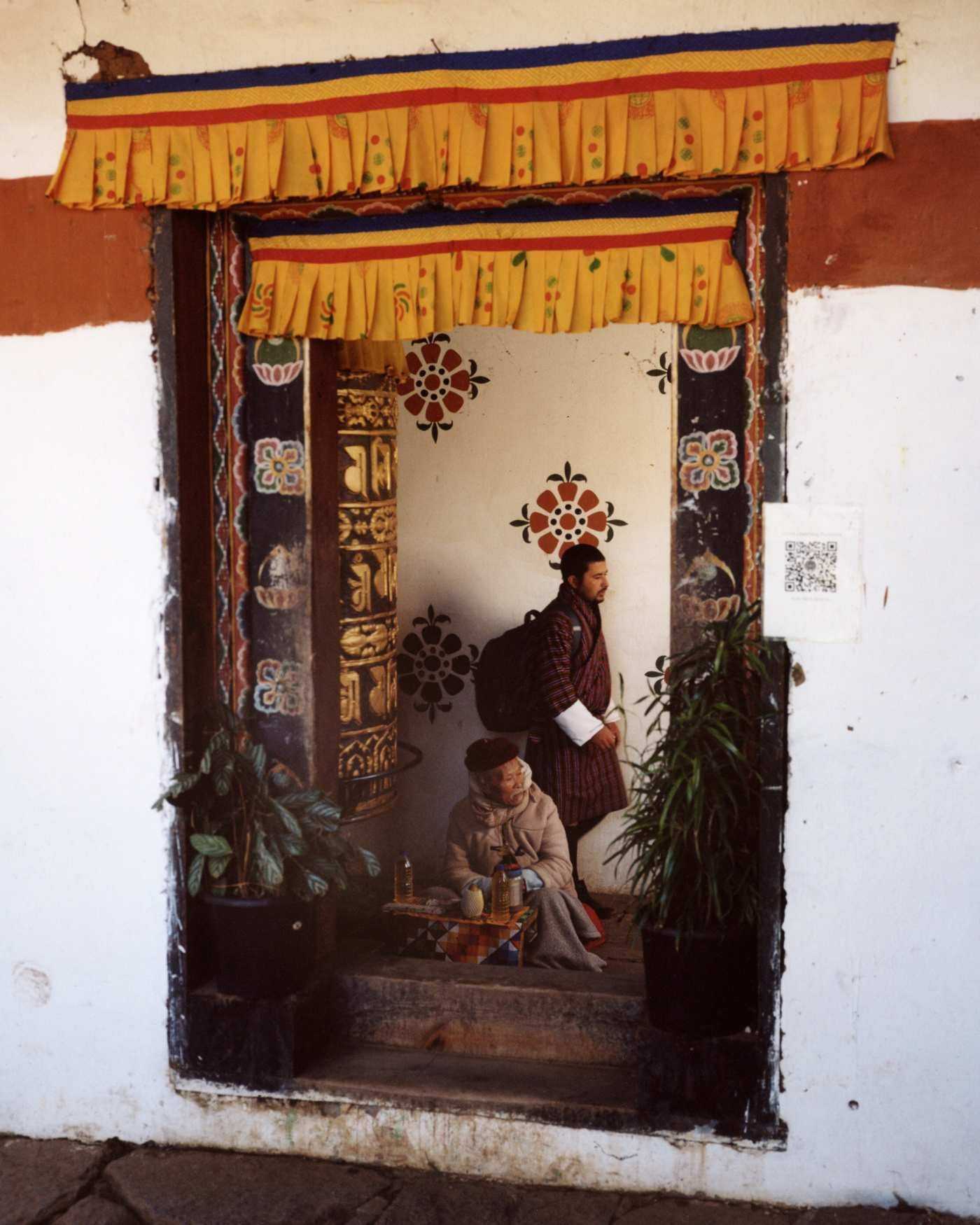 |
Chimi Lhakhang temple in Punakha district. Photo: FT |
Chimi Lhakhang temple in Punakha district. Photo: FT
The pause is also in the whitewashed fortresses, feeling like time portals to a bygone century. It's in the temples where pilgrims quietly finger prayer beads and whisper prayers, leaving a pebble on a window sill after each clockwise rotation.
In humanity's endless play of life, death, and the spaces between, Bhutanese culture offers a sense of both the ancient and the urgent, a reminder to cherish the ephemeral. It gently imposes introspection through Buddhist teachings or the simple purity of human connection you encounter--like signposts to a meaningful life, all along the way.
So, if you can, go to Bhutan soon. As the Bhutanese will tell you, you never know which walk will be your last.
Hoai Anh (According to Financial Times)




